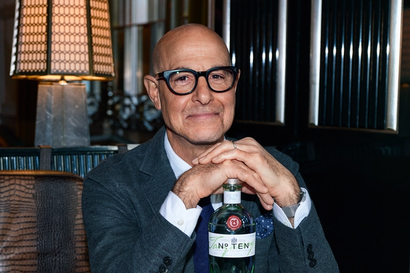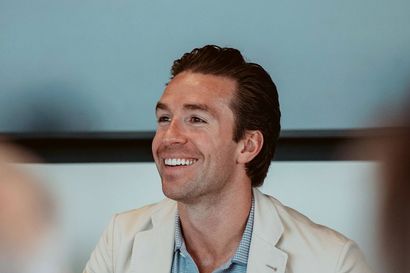What’s in a name? If you’re Scooter Braun, a hell of a lot. The super-manager — best known as the driving force and mastermind behind the careers of Justin Bieber, Ariana Grande et al — has cruised along for two decades by that catchy moniker. It’s zippy, peppy, memorable; the ‘Scooter’ All-American and playful; the ‘Braun’ brooding, bold and coloured with European history. A brand name unto itself — the kind of thing, perhaps, that might elevate a behind-the-scenes string puller into something of a star in his own right. ‘Scooter’ is evocative, and full of possibility: he could be a heartthrob quarterback, or a cheeky comedic foil in a Hollywood romcom, or a high-flying San Francisco venture capitalist. Or, as it happens, a college fake ID merchant turned Atlanta party promoter turned powerhouse of modern pop music. It’s a good name, Scooter Braun. But it’s not technically Scooter Braun’s.
“My name is Scott. And you’re welcome to call me that as well,” Scooter/ Scott begins, dialling in from his office in Los Angeles in a white t-shirt and black leather chair. “But I always said I never liked the name Scott. I never felt connected to Scott. I felt that I was called the wrong name. And so I chose the name Scooter. And Scooter was strong enough to take on the world, and do the things he wanted to do, and he had big dreams that he could accomplish. And I built this big, amazing, giant life around Scooter Braun.”
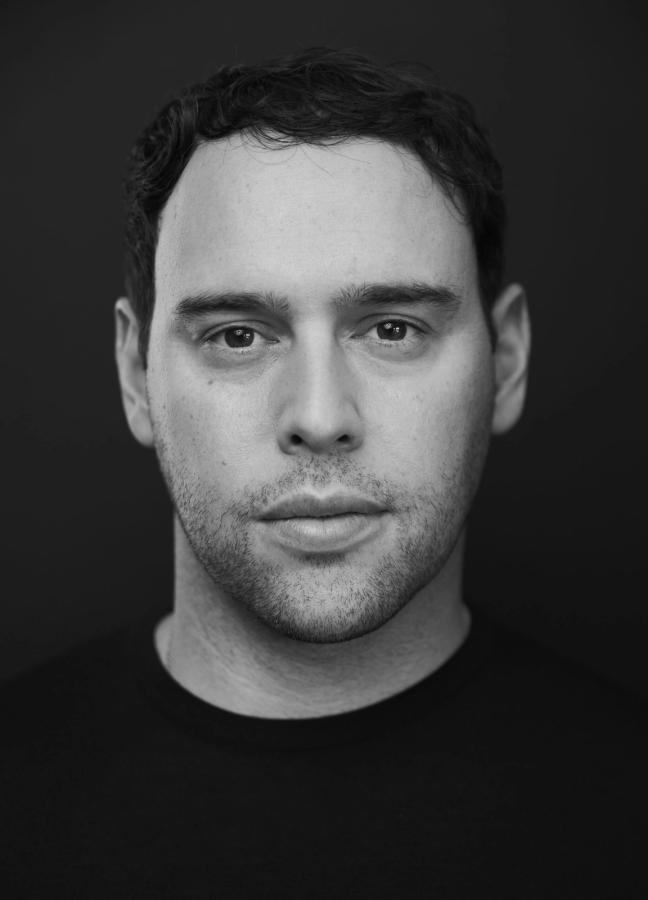
“And it wasn’t until this past year of Covid, when I was dealing with some darkness and I decided to step into some real self work, that I went back and realised the truth about why I never liked my name,” Braun continues. “I didn’t trust Scott. And this past year, when I went back and got little Scott — and realised he was strong enough and that he was good enough — I went back and re-claimed that name. And now I’m happy if you call me Scott or Scooter, and I’m responsible for both of them.”
Let’s start with Scooter — the buccaneering, fearless Scooter. At age 19, Braun was a freshman at Emory College in Atlanta, selling fake IDs to fellow students with a business partner. But he soon realised that the real money wasn’t in helping kids to get into parties — it was putting on the parties yourself. “When I danced at parties I knew that the DJ made more money than the dancers, so I became a DJ,” he explains. “And then when I was a DJ I found out the promoter made more money than the DJ, so I became the promoter.” This canny hop-skip-jump transformed Braun, at just 20, into one of the most formidable club promoters in Atlanta. His early success lay in the fact that he could bring college kids in to see giant hip hop acts, who liked to trial their new work on a ‘crossover’ crowd. “I understood how to hustle. And I understood how to corner the market by bringing in and sharing the wealth with the right people, and destroying the competition,” he laughs. “But I always wanted to give people bang for their buck.”
"I used to wear a gun on my ankle, and had a gun by my bedside..."
It was a brutal game. “I used to wear a gun on my ankle, and had a gun on my bedside,” Braun says. “I was a cash party promoter in the murder capital of the United States.” One night, in late 2003, an altercation inside Chaos nightclub spilled into the parking lot. Braun’s friend Wolf Jones — a fellow promoter and the former bodyguard of P Diddy — was shot 14 times and died on the scene. “When I heard that, I thought to myself: what am I putting myself into?” Braun says. “What am I doing?” He quit almost immediately, and decided to dive “head first” into the music industry — partly because he observed the gravitas of the record executives who came to his club nights, and figured that was the logical next rung on the ladder. But equally because he remembered a quote from entertainment kingpin David Geffen — then his idol, now a friend and collaborator. “He said: ‘movies take years, TV shows take years — but a song can change your life in a night.’ So I went into music.”
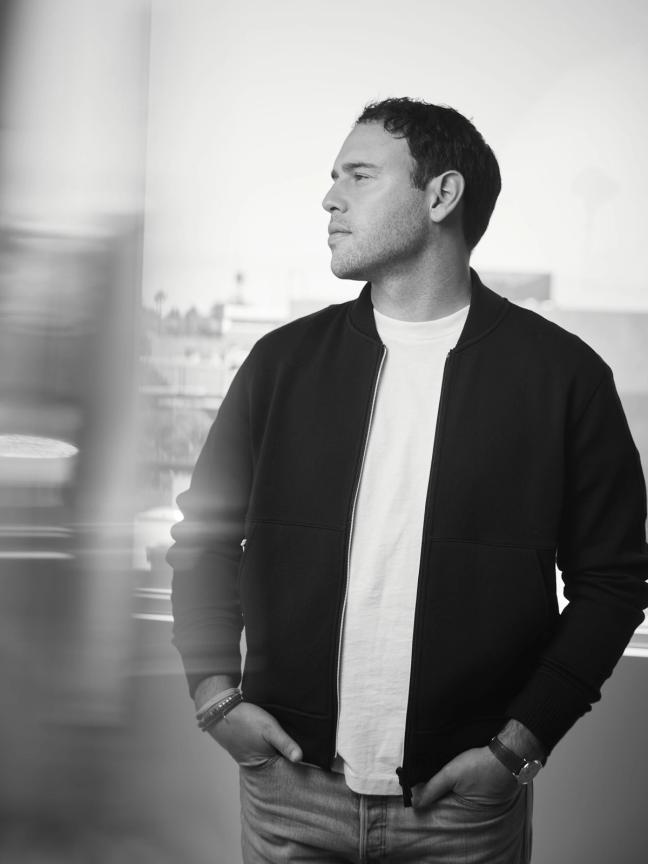
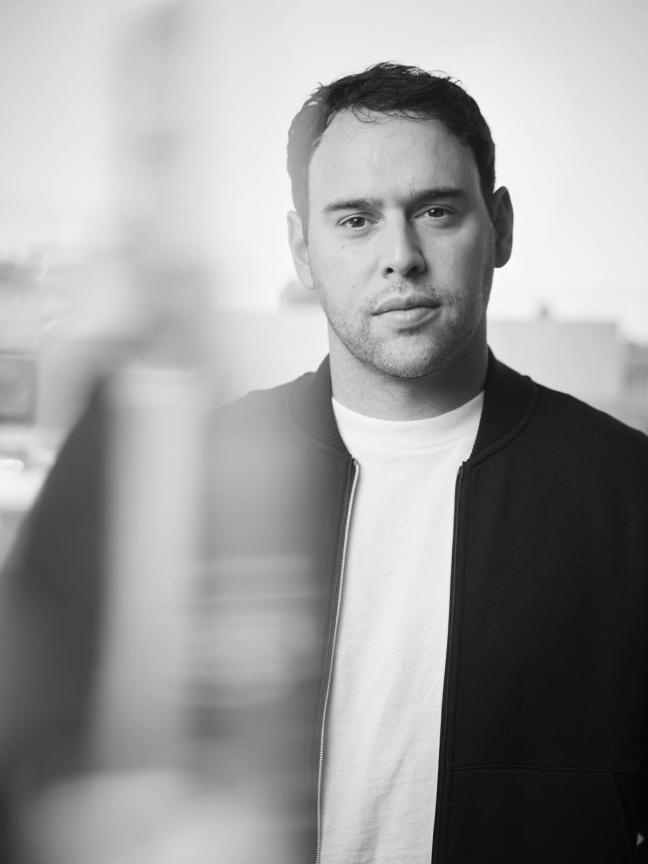
The rest, as they say, is history. But history tends to leave out the speedbumps. Braun discovered Justin Bieber while browsing YouTube in 2007, and was instantly convinced of his potential. (“From the first video I saw of him, I had a complete vision of him being the biggest artist in the world,” Braun remembers. “I saw it so clearly.”) Bieber is the most successful pop star of the new millennium by several metrics, and in March of this year he became the youngest solo artist in history with eight number one records on the Billboard charts — a crown he claimed from Elvis Presley. But back in 2007, nobody cared.
“No-one wanted him,” Braun laughs. “Everyone thought he was the YouTube kid. They said he was too young.” Braun remembers how one all-powerful exec had no idea what YouTube was, and requested that he send in DVDs of Bieber’s busking videos to the office. Another questioned the angelic 13-year-old’s sex appeal, which seems to entirely underestimate the hormonal potency of teenage fans. But Braun persisted — even as his bank balance began to flat line.
"The publicist said: ‘I don’t want the internet kid and his crazy manager!'"
“At the start, I was paying for everything — for his school, his hockey practice, his house,” Braun explains. He had convinced Bieber and his mother to move from Canada into a townhouse close to him in Atlanta (“He stopped at nothing — contacting everyone in my hometown to make sure my mom called him back,” Bieber told Variety earlier this summer,) and was putting up rapper Asher Roth and his entourage at the same time. Braun had bought himself a runway of 13 months, based on savings from his party promotion days — but by 2009 he was weeks away from going broke and desperately trying to make something stick. And then Asher Roth’s buoyant party anthem ‘I Love College’ dropped that summer, and its million dollar publishing deal saved the business overnight. Soon afterwards, Bieber exploded too.
“We went from 60,000 views when I met him to 66 million when we signed the record deal,” Braun explains. Even so, the pair had to leverage Usher’s cachet with mega executive L.A. Reid to get a deal done — and still couldn’t secure a marketing budget to promote the cherubic star. “The publicist at the label at the time said: ‘I don’t want the internet kid and his crazy manager,’” he laughs. “But ever since then, we’ve been on the ride that is Justin Bieber.”
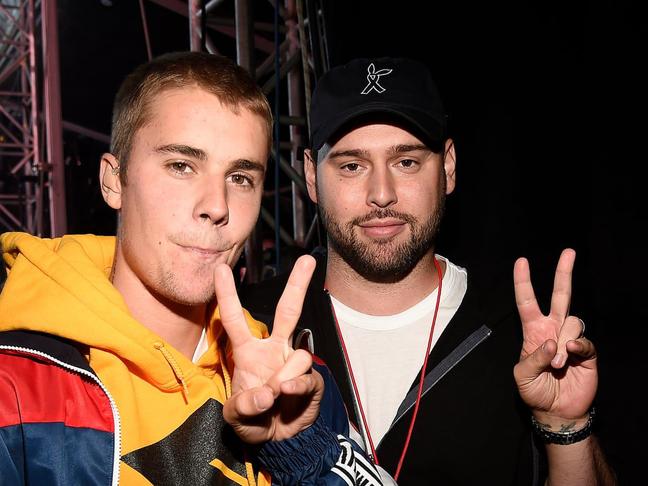
Peace and love: Justin Bieber and Scooter Braun backstage in 2018
A rollercoaster doesn’t do it justice. Bieber’s journey has been stratospherically turbulent — wild highs, wilder lows. Elon Musk and Jeff Bezos would monetise it if they could. Between 2012 and 2014, just after he turned 18, Bieber went through what Braun describes, with some knowing understatement, as “a rough patch.” It was an adolescent rebellion under the gaze of a thousand flashbulbs — a succession of run-ins with the law and vicious pummelings from the media that saw his clean-cut, boy-next-door image unravel dramatically. By the end of 2015, however, Bieber had released Purpose — perhaps the finest-produced pop album of the past decade, and a huge commercial as well as critical success. At both poles, Braun was in his corner — a manager and a mentor, but also something of an older brother.
“I’m so proud of who he is as a man today at 27,” Braun says. “To be the most googled person in the world throughout your adolescence, and to come out on the other side — poised, confident, kind, and happily married… I’m just really, really proud of him.”
"Move in silence. Do the work. The rest will speak for itself."
Braun insists that these relationships are a two way street. “The really great mentorships are when someone is offering you just as much back,” he says. “I see colours differently from my three years of working with Kanye — I see palettes differently. With Ariana, she has such a finger on the pulse of culture — it’s extraordinary the things sees, and she’s aware of, and that I learn from her. Justin helped me be a better man. Going through those struggles together, it’s been incredible.”
Was there a moment when he felt vindicated? When he knew that they’d finally made it? “There was a point when Justin was going through his stuff,” Braun says. “His addiction, all the stuff he was going through. Which is in his family — a lot of people have fought through that. It was in his blood.” Out of nowhere, Braun says, Peter Mensch — a respected industry figure who managed the Red Hot Chili Peppers — gave a punchy interview to the Daily Mail. “He said something to the effect of: ‘If I was Scooter Braun I’d take Justin behind the woodshed and give him an ass-whooping. But Scooter’s too much of a chicken shit to do it. But it doesn’t matter — no-one’s going to know the name of Justin Bieber in three years anyway.’” Braun took a picture of the quote, and sat on it. “I waited until five years later, when Justin had broken the records with ‘Despacito’ and Purpose — I waited for a lot of success. I waited five years. And then I posted that photo on my Instagram — and I said: “Move in silence. Do the work. The rest will speak for itself.”
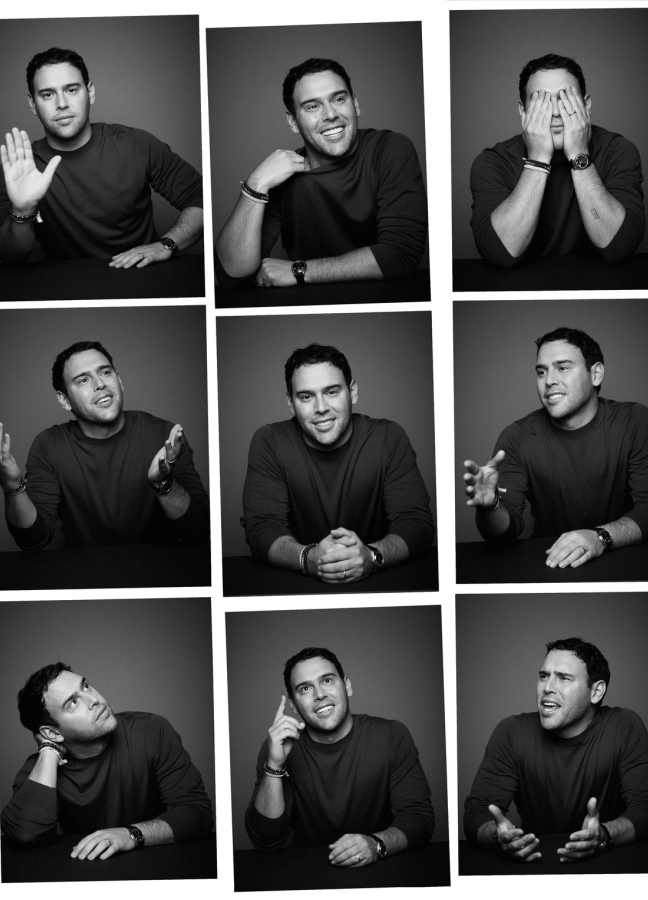
I ask Braun whether this kind of antagonism drives him. When he was at Emory, and his grades began to plummet because he was spending all his time putting on parties, one of the academic probation officers gave him a lecture about his odds of success as an entrepreneur — “about one in a billion”, he’d said. Braun dropped out that day. At another point in our conversation, Braun explains why he never had impostor’s syndrome when facing down industry bigwigs as a 21-year-old kid. “I thought: Why not me? Why should this CEO be so important? My grandfather was a hero to me, and he did odd jobs in New York city.” (Plus, he said, his dad taught him a neat trick: “Just imagine the other guy taking a shit. It works — and it’ll make you giggle, too.”) Does he thrive on proving people wrong?
“In the past, disrespect fuelled me,” Braun says. But now things aren’t quite so clear cut.“You can have a competitive mindset, which is about winning, and you’re never going to have enough — you’re just going to need to keep winning, and keep winning, to fill up the cup and fill up the cup,” he says. “Or you can have a creative mindset, where the joy of building is bountiful and never ending. That’s where I’ve got to in my life today. Someone’s disrespect doesn’t affect me as much, because I’m just creating within myself.”
“I thought: Why not me? Why should this CEO be so important?"
This is Braun at his most introspective — it’s more Scott than Scooter, you suspect. He seems to have been on something of a journey in recent months. At several points during our conversation, he references the personal “work” he’s been doing during a difficult year, and talks of “dealing with some darkness” on more than one occasion. He describes at one point how his upbringing, in ways both good and bad, has shaped and moulded him.“My grandparents were holocaust survivors,” he says. “My dad was a refugee. My mom’s dad died when she was 11. My parents and grandparents — they had tough lives… you always inherit their trauma.” But this, he says, is what makes you more resilient, too. “You get to unlearn bad habits as you get older.”
Fame itself is a type of trauma. “It brings out the best and the worst in us,” Braun says. “And I think you have a lot more insecurities when your life is playing out in front of the entire world.” He seems to have experienced that particularly sharply this past year.
“There’s a line in Batman: ‘if you do it right long enough, even you will become the villain.’ And I had my experience recently where I was painted as the villain,” Braun continues. “I’m not shying away from that. But that experience, I had to look at that and say: what blame do I have in this? I’ve never bullied anybody. I don’t even have that much of an experience with this person saying this. I was excited to work with them.” The incident he’s alluding to centred on a deal-based dispute. Looking back now, Braun says, the trouble came because he put together an agreement “without everyone being all in. I didn’t necessarily deserve what happened next. The vicious cycle happened. And I have no ill will. I learned a lot from the experience.”
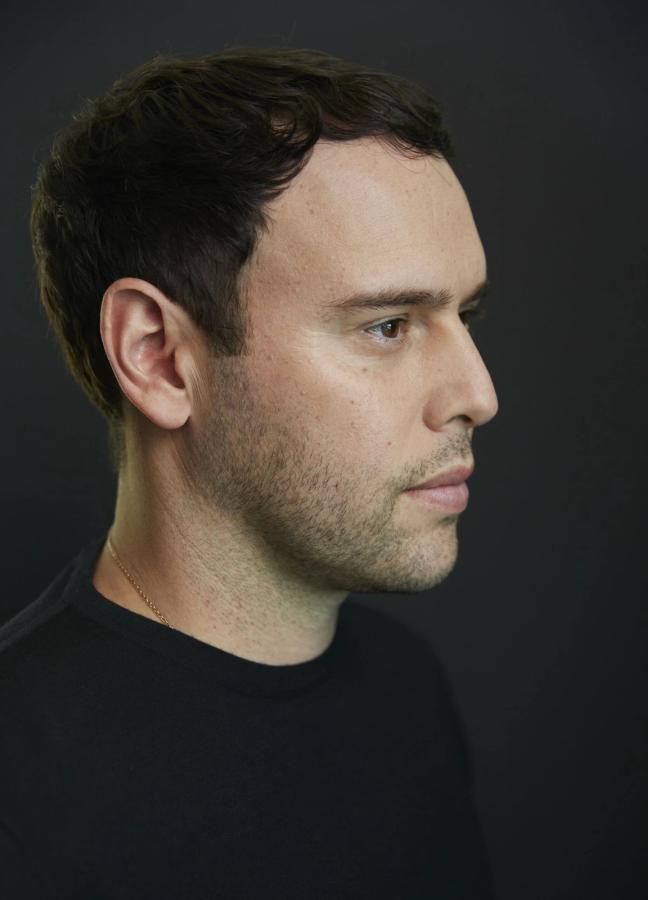
Other deals, of course, have been more gratifying — thanks in part, Braun says, to the lessons he learned from the last year. The recent $1.05 billion acquisition of his Ithaca Holdings by HYBE — the South Korean behemoth behind intergalactic boyband BTS — was a deal that benefited everyone, and Braun made sure that every party and player was entirely happy and properly compensated. It will likely go down as one of the most significant mergers in modern music history — and showed again the combination of business guts and guile that Braun has long displayed, not least as an early investor in Pinterest, Uber, its competitor Lyft, and Bumble. The thing he likes about all these companies’ founders, he says, is that they have a ‘burn the ships’ mentality. “They used to say, when [warriors] arrived on the shores of their enemies, that they’d burn the ships — because the only way they were going home was in the ships of their enemies. There is no retreat. We’re going to figure this out — or we’re going to die here,” he laughs. “That mentality in a founder, when you see it — you know there’s something special.”
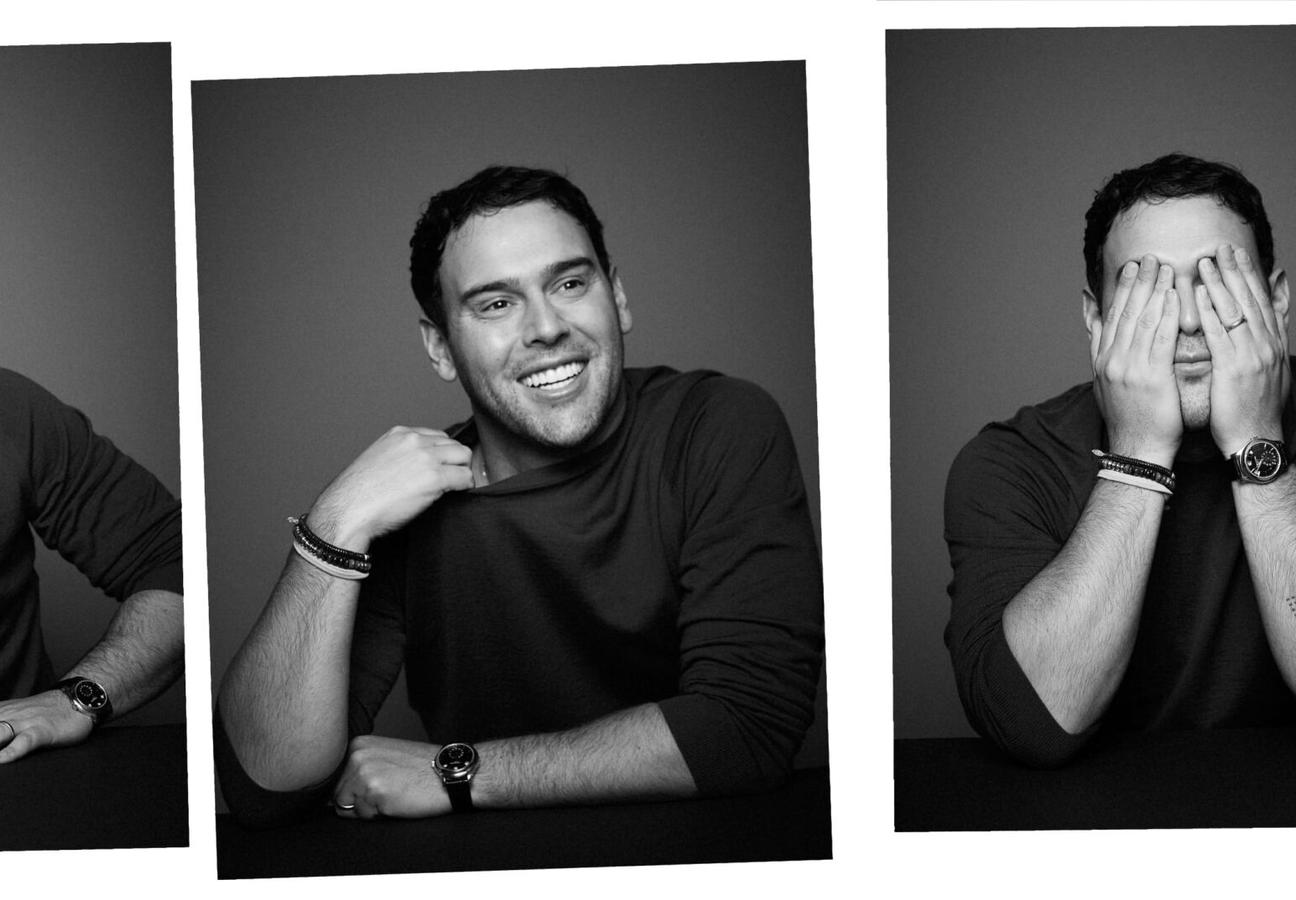
Braun turned 40 a couple of months ago. If you’d have met him at 20, or 30, I suspect he’d have been a ‘burn the ships’ type of guy. Burn the ships, melt the swords; charge in barehanded and leave in a Learjet. But nowadays I’m not so sure. He trusts more to providence, he says. Luck, or something similar. Even if the ships get burned, perhaps it’s all meant to be. Perhaps a nicer, faster, more interesting ship will turn up anyway. Perhaps it’ll have a more eclectic soundtrack, or better catering.
“I mean, it’s statistically impossible for me to be where I am today,” he reflects. “Someone upstairs has been looking out for me. And I’m going to put more trust in him or her. And I’m going to enjoy the next ten years as much as I possibly can. And any pain and resistance that comes along, I’m going to lean into and learn from it.”
“I can tell you: I’m a better man at 40 than I was at 30. And I’ll be a better man at 50 than I am at 40.”
Read next: Louis Theroux on Joe Exotic, Max Clifford, and finding the elephant in the room
You can also listen to this interview (and many others) as a podcast, here.

Become a Gentleman’s Journal Member?
Like the Gentleman’s Journal? Why not join the Clubhouse, a special kind of private club where members receive offers and experiences from hand-picked, premium brands. You will also receive invites to exclusive events, the quarterly print magazine delivered directly to your door and your own membership card.

